2024 CABS Investor Forum recap
Date: January 10, 2024 @ 12:00 am – February 10, 2024
Location: Morrison and Foerster, SF office
The Chinese American Biopharmaceutical Society (CABS) kicked off 2024 with the Investor Forum on January 10 during the week of JP Morgan. The event was held in San Francisco at the offices of Morrison and Foerster. Morrison and Foerster, a CABS Sponsor, has partnered with CABS for over 10 years to host this event. This year’s themes focused on investments for 2024 and beyond as the industry emerges from a winter of investments from 2023 and identified strategies for transactions with opportunities, business terms, and lessons from 2023.
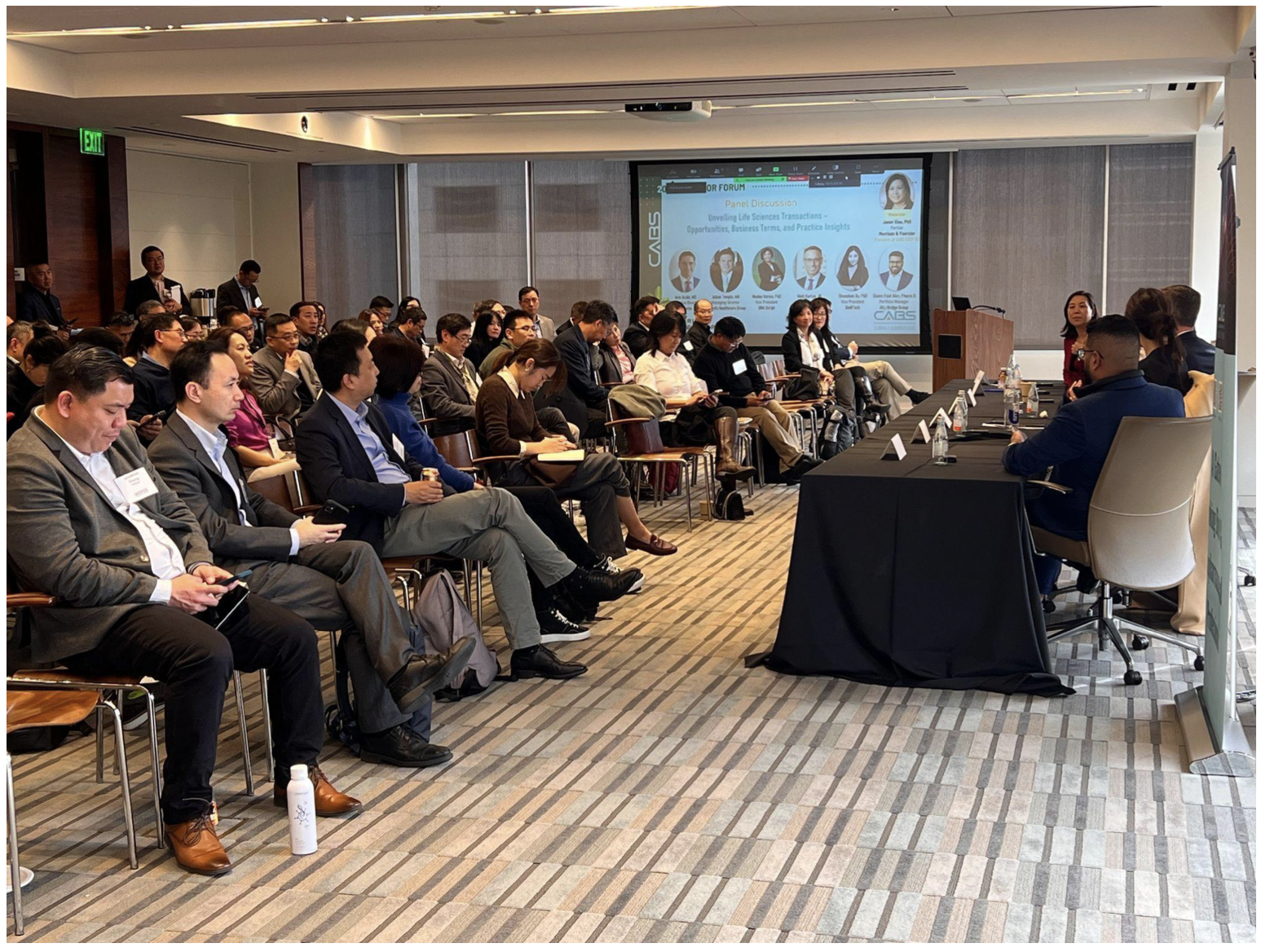
Jessica Sun, PhD, Executive Director, In Vivo Pharmacology, Terremoto Biosciences, President of CABS opened the event in a packed house with over 150 attendees.
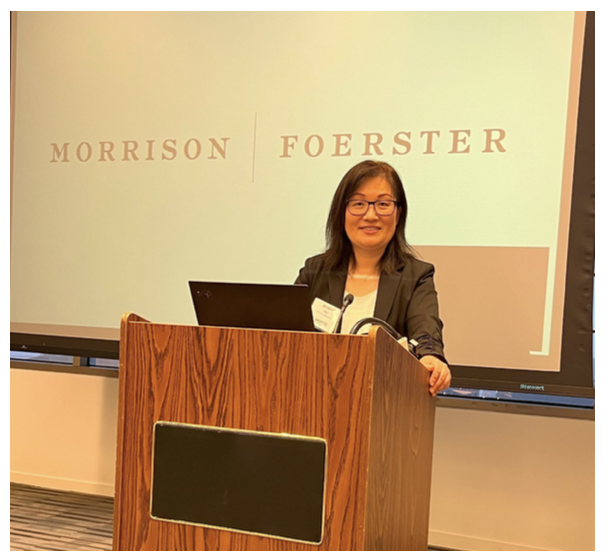
Alex J. Zhang, PhD., CEO OneTwenty Therapeutics, CABS President 2017-2018; moderated the first panel which shared insights from Investors and Entrepreneurs as lessons learned from 2023 and provided guidance and strategies for funding and building a successful startup in 2024.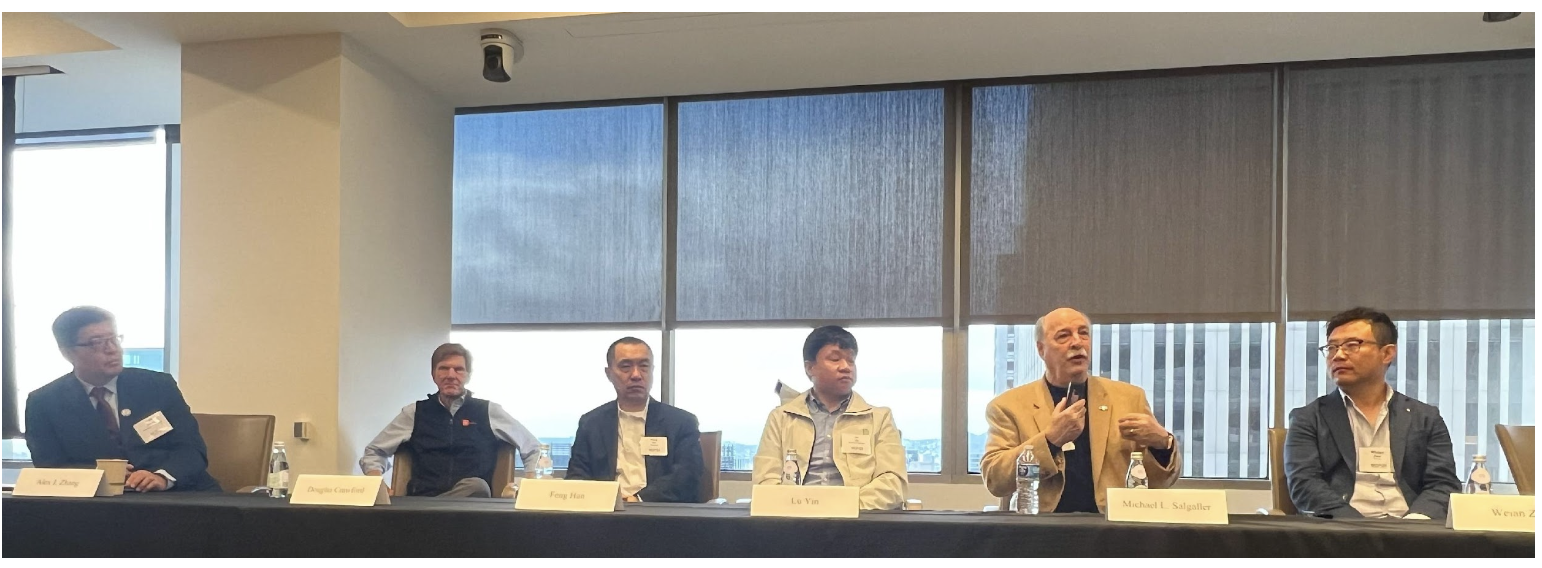
Perspectives from panelists highlighted the relationship building and branding for entrepreneurs, investors including the NIH program officer, strategic spending and buffering appropriately for the long haul to support development and manufacturing until clinical data read out, as well as diversity and inclusion in clinical trials.
2023 was a winter for funding and investing in pharmaceutical and biotechnology companies. It highlighted that there were less funds available for investment as it was driven by interest rates. Companies were propping up their current portfolio and prices were not adjusting to the valuation. Spending got out of control as capital was easy to come, but the burn rate was too high which made the funding in 2023 hard which resulted in layoffs. Prices for public companies dropped by 50%, but private companies did not change in equity and valuation. This was critical for 2023 in why funds were limited.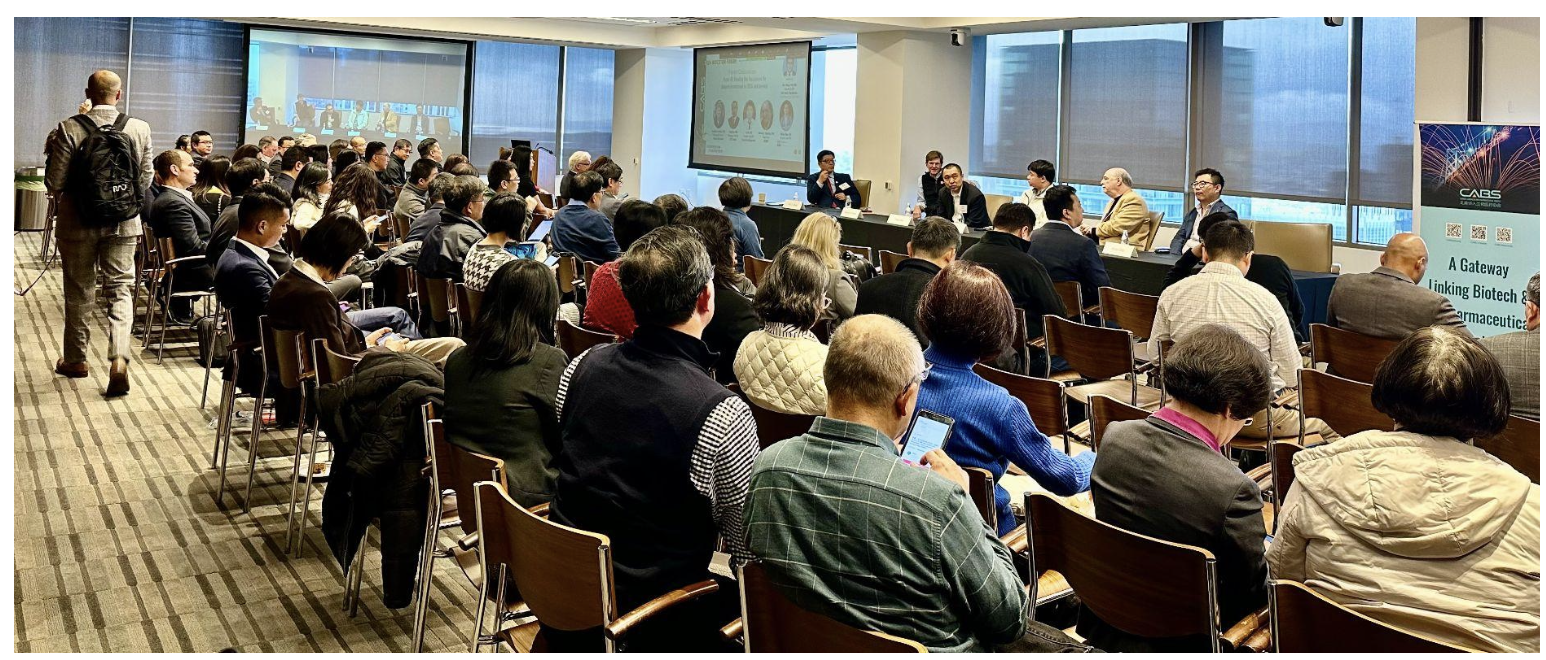 Panelists encouraged entrepreneurs to focus on relationship building and be persistent. They advised not giving up and making the call as investors will invest. Wisdom was provided to be strategic in spending and allow the business to shrink space in need and have a sensitivity to capital spending. First time fundraising is hard and what you do not know you do not know; hence it is important to start talking to investors before you start raising money. Incubators can help. When the time comes to raise money then it becomes a more natural conversation. Establishing trust in the company and what the product is. Start early to build that connection. Do not think of asking for money from investors, but a connection as they can help on a conversation or connection in the future. Listen to your gut and read people to use them for the task at the company. This goes with the investors; they have a certain style or process. Work with an investor that you feel right with. Scientific and clinic boards will be people who will tell you what you need to hear and not what you want. You want to know the gaps and holes in an investment pitch. It was encouraged to diversify people in a company and have people who disagree and hold you accountable. Mentors, advisors, consultants, and board members can help in difficult situations as they can help de-risk.
Panelists encouraged entrepreneurs to focus on relationship building and be persistent. They advised not giving up and making the call as investors will invest. Wisdom was provided to be strategic in spending and allow the business to shrink space in need and have a sensitivity to capital spending. First time fundraising is hard and what you do not know you do not know; hence it is important to start talking to investors before you start raising money. Incubators can help. When the time comes to raise money then it becomes a more natural conversation. Establishing trust in the company and what the product is. Start early to build that connection. Do not think of asking for money from investors, but a connection as they can help on a conversation or connection in the future. Listen to your gut and read people to use them for the task at the company. This goes with the investors; they have a certain style or process. Work with an investor that you feel right with. Scientific and clinic boards will be people who will tell you what you need to hear and not what you want. You want to know the gaps and holes in an investment pitch. It was encouraged to diversify people in a company and have people who disagree and hold you accountable. Mentors, advisors, consultants, and board members can help in difficult situations as they can help de-risk.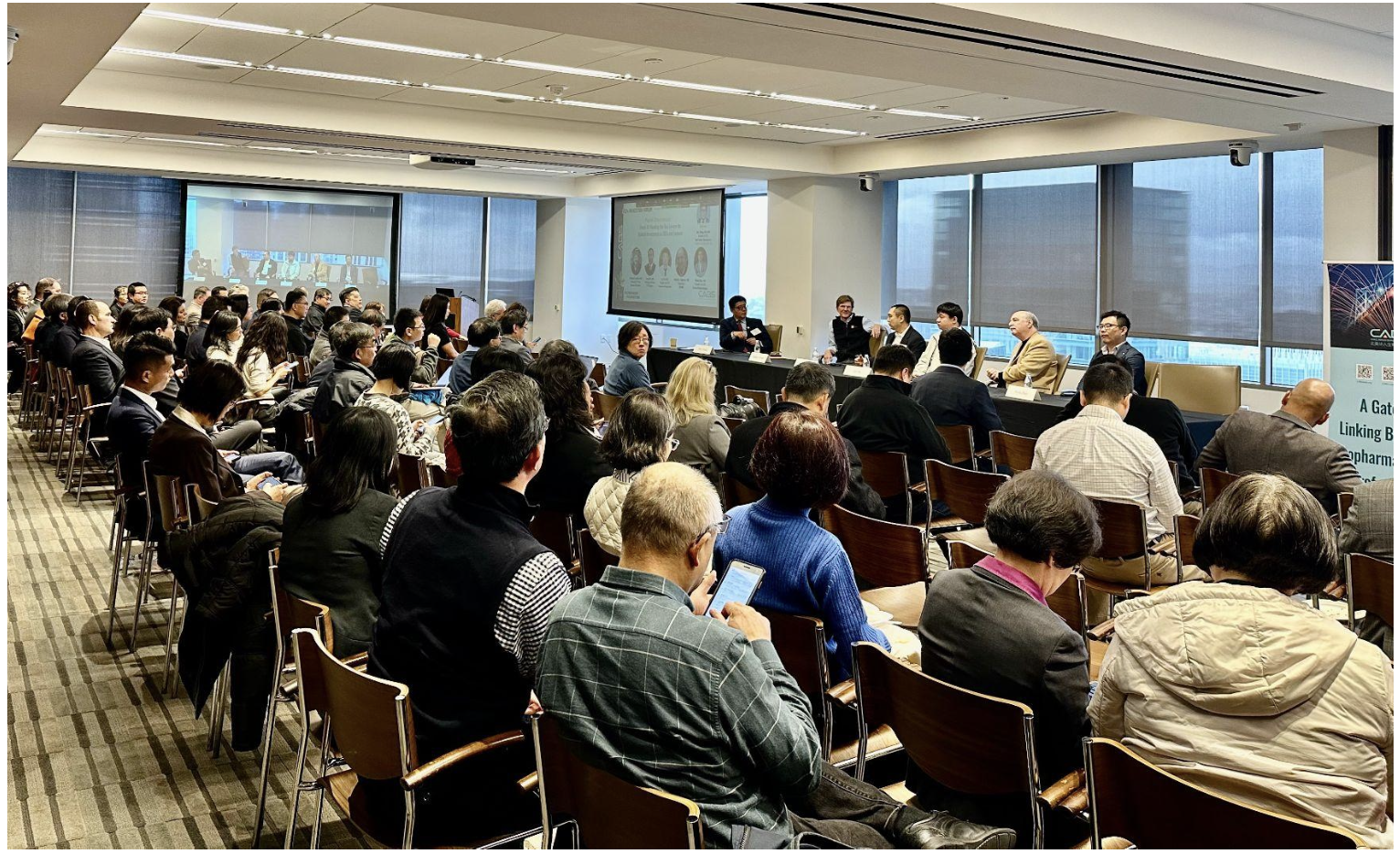 The discussion closed with predictions for 2024. Artificial Intelligence will take over sooner than we think. Consumers will be less patient as technology tools to make us know about ourselves increase and the need for instant feedback will grow as the speed and spread of information also increases because of technology. Deals announced the week of JP Morgan reflected big pharmaceuticals as they are being evaluated by stockholders return which will look more positive for 2024. Burn rate for a company will be the focus as things will take longer in this environment which included hiring, funding, and an FDA submission. Prepare yourself and reserve a buffer and cash. Pricing on drugs will also impact innovation. The hope is that post-election there will be bipartisan support for medical research. Antibody Drug Conjugates will not be the next hot topic. What is the next hot therapeutic side potentially neuroscience that can be driven with med tech may be ahead of Biopharma. A legation change can also bring back neglected diseases which could also change the industry to bring that back as a new push.
The discussion closed with predictions for 2024. Artificial Intelligence will take over sooner than we think. Consumers will be less patient as technology tools to make us know about ourselves increase and the need for instant feedback will grow as the speed and spread of information also increases because of technology. Deals announced the week of JP Morgan reflected big pharmaceuticals as they are being evaluated by stockholders return which will look more positive for 2024. Burn rate for a company will be the focus as things will take longer in this environment which included hiring, funding, and an FDA submission. Prepare yourself and reserve a buffer and cash. Pricing on drugs will also impact innovation. The hope is that post-election there will be bipartisan support for medical research. Antibody Drug Conjugates will not be the next hot topic. What is the next hot therapeutic side potentially neuroscience that can be driven with med tech may be ahead of Biopharma. A legation change can also bring back neglected diseases which could also change the industry to bring that back as a new push.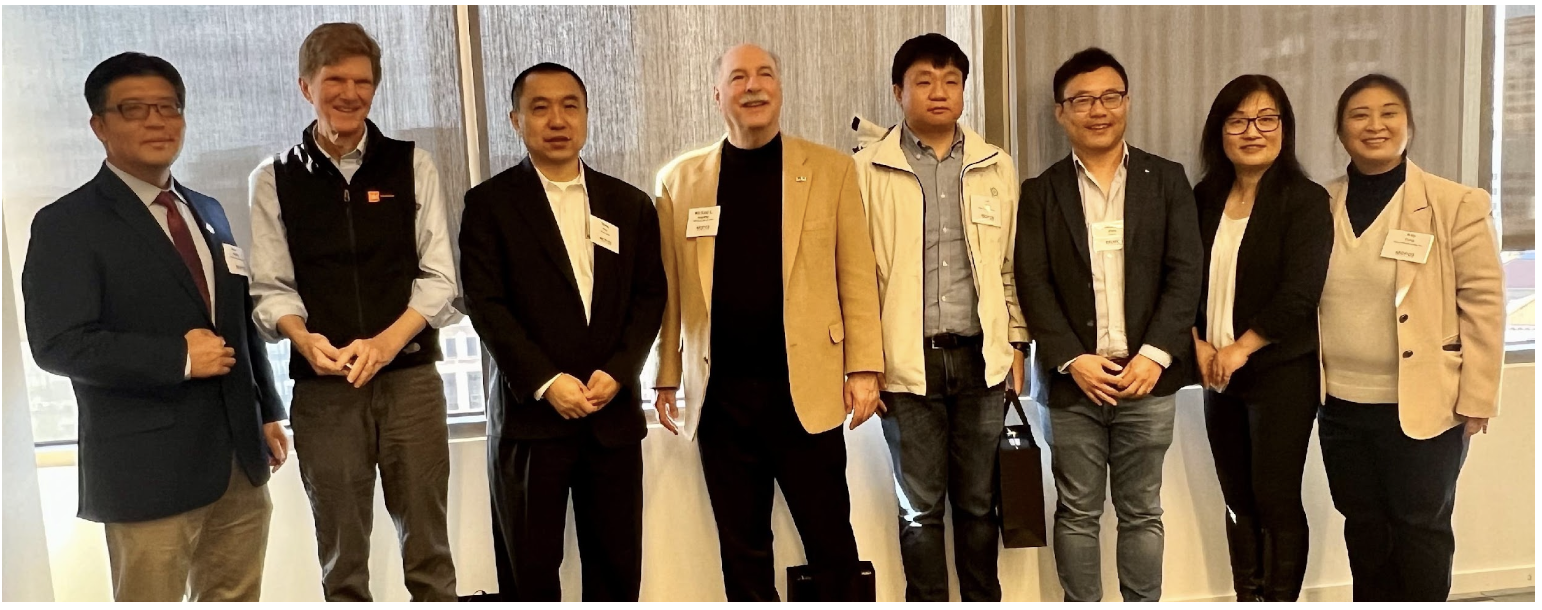
Panel Discussion 1: Reading the Tea Leaves for Biotech Investment in 2024 and Beyond (left to right)
Moderator: Alex J. Zhang, PhD., CEO OneTwenty Therapeutics, CABS President 2017-2018
Panelists: Douglas Crawford, PhD, Managing Partner, Mission BioCapital General Manager, MBC Biolabs; Feng Han, MBA, Managing Partner CTIC Capital; Michael L. Salgaller, PhD, Supervisor, Technology Analysis & Marketing Unit, NCI/NIH; Lu Yin, PhD, Founder and CEO Persperion Diagnostics; Weian Zhao, PhD, Founder and CEO Aureka Biotechnologies
CABS: Jessica Sun, PhD, Executive Director, In Vivo Pharmacology, Terremoto Biosciences, President of CABS 2024; Kay Tong, MA, Head of Quality Systems and Compliance, Sana Biotechnology, President-Elect 2024.
Janet Xiao, PhD, JD, Partner, Morrison & Foerster LLP, President of CABS 2011-2012 moderated the second panel discussion focusing on the fact that there had been more than 50 transactions representing over 150 million dollars including licenses and mergers by the panelists. This highlighted the fact that deals were happening in 2023. But was the driving factor and what were the strategies that were deployed for such success in 2023?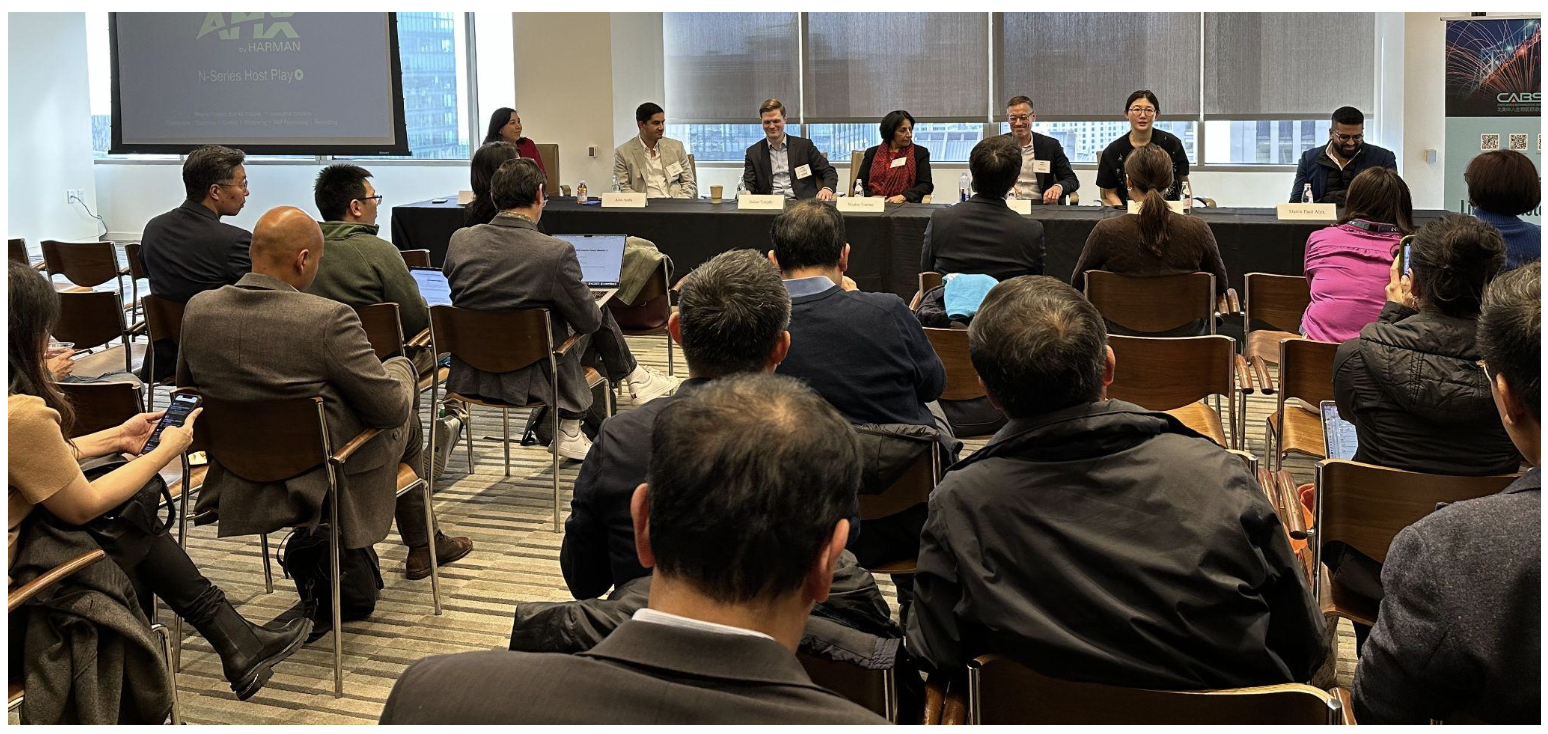 Panelists shared that there are many large pharmaceutical companies that are potentially going to lose revenue in 2025-2030. To fill this gap, lackluster products, Mergers & Acquisitions (M&A) will come back and be strong to help fill the gap as pharma has been late and pressured to fill it. New modalities and new technologies will catch up as companies will try new things. Strategies include risk behavior of the big pharma on the earlier side of companies in development, which may include a 50/50 share whereas late-stage assets will get a better deal with an M&A. 2023 focused on money and the cost was high for new things and the process to get money was harder for the smaller companies. You had to give up some assets to get to the end goal to get funded in 2023. This also included different structures to access innovation and the flavor of the details with different incentives. It was also noted that there is always business development and the large pharmaceutical companies also have their own in-house research at which they can quickly help move an asset to commercial quickly. Hence, it is important to weigh out R&D study costs and to think about what needs to be put on the shelf to move other products through. This strategy explains why large pharmaceutical companies move to license on an earlier asset to de-risk their own portfolio and to keep more cash as an acquisition is more costly to enter industry.
Panelists shared that there are many large pharmaceutical companies that are potentially going to lose revenue in 2025-2030. To fill this gap, lackluster products, Mergers & Acquisitions (M&A) will come back and be strong to help fill the gap as pharma has been late and pressured to fill it. New modalities and new technologies will catch up as companies will try new things. Strategies include risk behavior of the big pharma on the earlier side of companies in development, which may include a 50/50 share whereas late-stage assets will get a better deal with an M&A. 2023 focused on money and the cost was high for new things and the process to get money was harder for the smaller companies. You had to give up some assets to get to the end goal to get funded in 2023. This also included different structures to access innovation and the flavor of the details with different incentives. It was also noted that there is always business development and the large pharmaceutical companies also have their own in-house research at which they can quickly help move an asset to commercial quickly. Hence, it is important to weigh out R&D study costs and to think about what needs to be put on the shelf to move other products through. This strategy explains why large pharmaceutical companies move to license on an earlier asset to de-risk their own portfolio and to keep more cash as an acquisition is more costly to enter industry.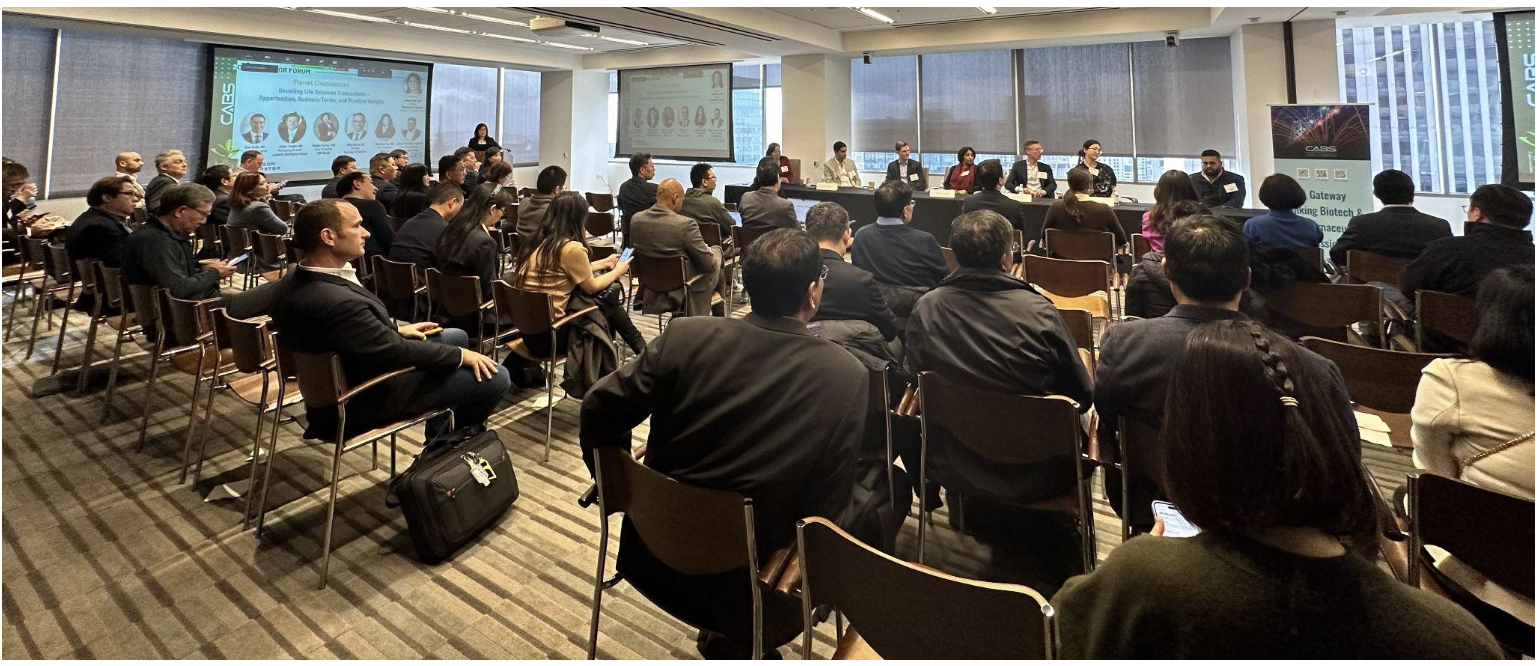 Another strategy discussed was diversification. Previously the market and trend focused on oncology and the shift is changing in 2024 to immunology and neurology. This also includes orphan indications as there are some big pharma that do not have that funding limitations to fill a gap hence, they can do longer investments. For example, Lily and Novo are looking ahead to other novel therapeutics. Aging was also discussed as a new push which included various aspects of aging such as stopping, slowing, delaying the effects; and treating age related diseases which include obesity and cardiovascular risk. The change is coming as leadership changes in these big pharmaceuticals as it will create a change for a new direction in a therapeutic avenue.
Another strategy discussed was diversification. Previously the market and trend focused on oncology and the shift is changing in 2024 to immunology and neurology. This also includes orphan indications as there are some big pharma that do not have that funding limitations to fill a gap hence, they can do longer investments. For example, Lily and Novo are looking ahead to other novel therapeutics. Aging was also discussed as a new push which included various aspects of aging such as stopping, slowing, delaying the effects; and treating age related diseases which include obesity and cardiovascular risk. The change is coming as leadership changes in these big pharmaceuticals as it will create a change for a new direction in a therapeutic avenue.
The climate is also changing in China as innovation is booming and scientists are going back to China as the problem of the U.S. and EU Bamboo ceiling has been experienced by many Chinese scientists. This has caused many to go back and start companies in China. 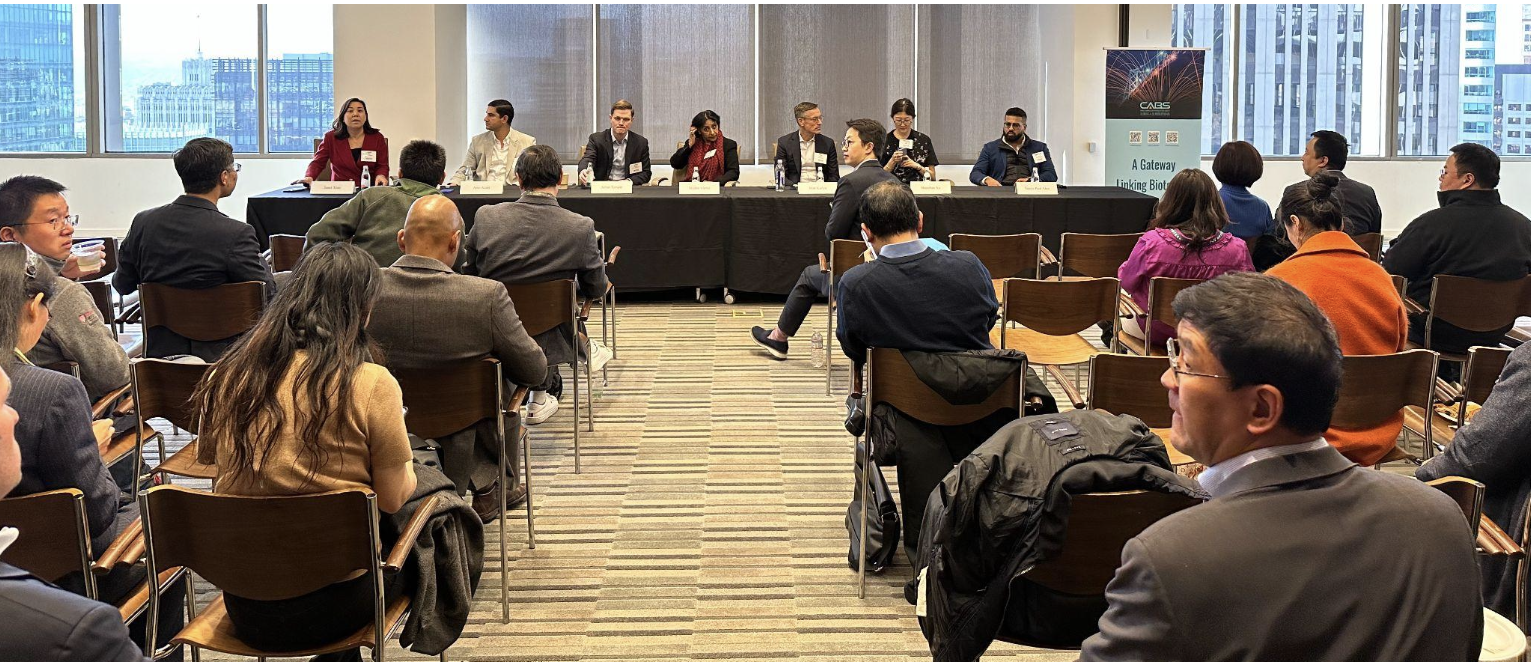 Exit strategies were also highlighted to advise entrepreneurs to be strategically planning early on as Chinese investors want to have the Initial Public Offering (IPO) on the Hong Kong or Shanghai exchanges. Whereas United States investors would want to exit on the NASDAQ. Hence, when deals or discussions begin it is recommended to seek outside counsel with appropriate expertise in the respective areas that also includes expertise in the local country for the transaction or asset as they are aware of the local economic trends.
Exit strategies were also highlighted to advise entrepreneurs to be strategically planning early on as Chinese investors want to have the Initial Public Offering (IPO) on the Hong Kong or Shanghai exchanges. Whereas United States investors would want to exit on the NASDAQ. Hence, when deals or discussions begin it is recommended to seek outside counsel with appropriate expertise in the respective areas that also includes expertise in the local country for the transaction or asset as they are aware of the local economic trends.
It was also highlighted to not drag out deals as the appetite may change for either side or due to trends or events happening around the world. Advice was also provided by the panelist to have reasonable transactions and understand the risk including having good due diligence activities and to trust your instincts. Panelists shared that the transaction is the beginning of a relationship, and it is important to build trust and credibility including sharing problems early on and listening to the needs of the other party. Preparation is the key to understanding the relationship as a collaboration or partnership. This includes a governance committee as well.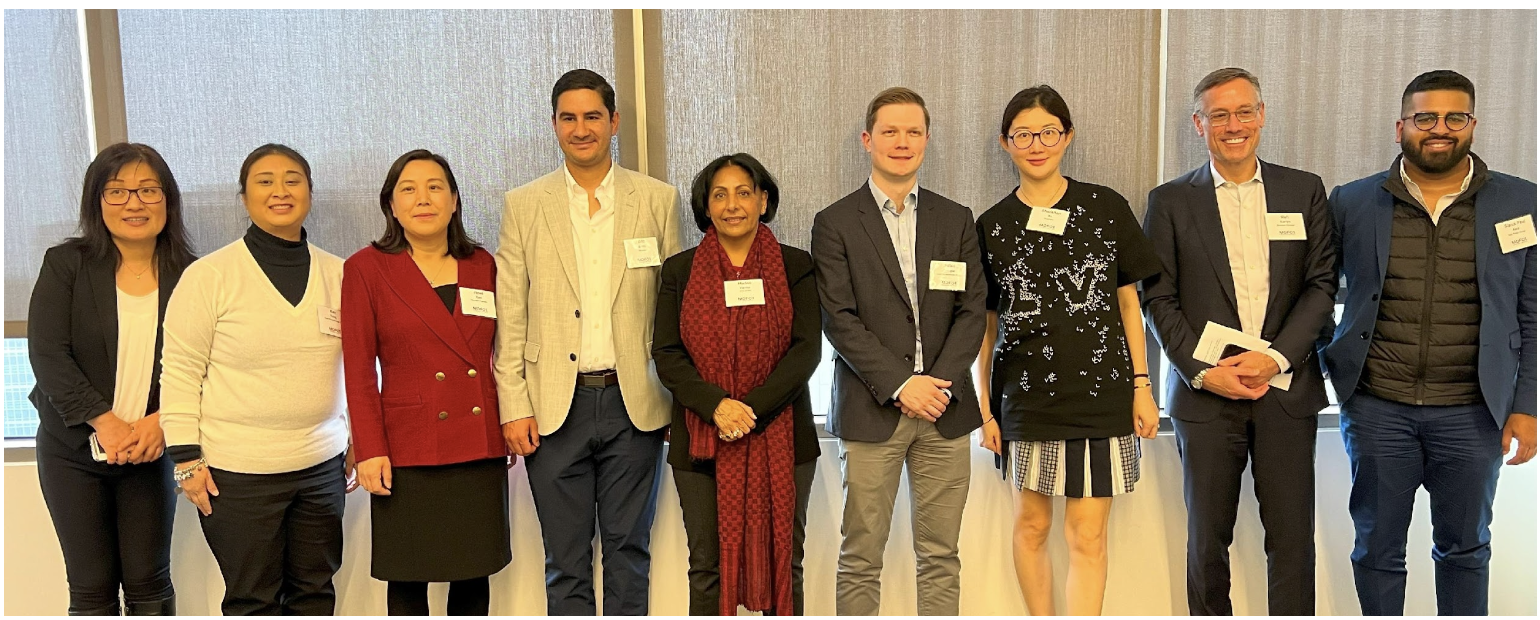 Panel Discussion 2: Unveiling Life Sciences Transactions: Opportunities, Business Terms, and Practice Insights (left to right)
Panel Discussion 2: Unveiling Life Sciences Transactions: Opportunities, Business Terms, and Practice Insights (left to right)
CABS: Jessica Sun, PhD, Executive Director, In Vivo Pharmacology, Terremoto Biosciences, President of CABS 2024; Kay Tong, MA, Head of Quality Systems and Compliance, Sana Biotechnology, President-Elect 2024.
Moderator: Janet Xiao, PhD, JD, Partner, Morrison & Foerster LLP, President of CABS 2011-2012
Panelists: Ario Arabi, MS, Executive Director of Global BD Licensing Transaction, Novartis; Madoo Varma, PhD, VP Strategy & Business Development, DNA Script; Julian Temple, Managing Director, Healthcare Group, Lazard; Shanshan Xu, PhD, VP, External Innovations, BioNTech; Matt Karlyn, JD, Partner Morrison & Foerster LLP; Slanix P. Alex, PharmD, Portfolio Manager, Ally Bridge Group
CABS strategically had over hours of networking opportunities for both entrepreneurs and investors to enable collaboration opportunities. Lunch closed the event which was an hour of networking as well.
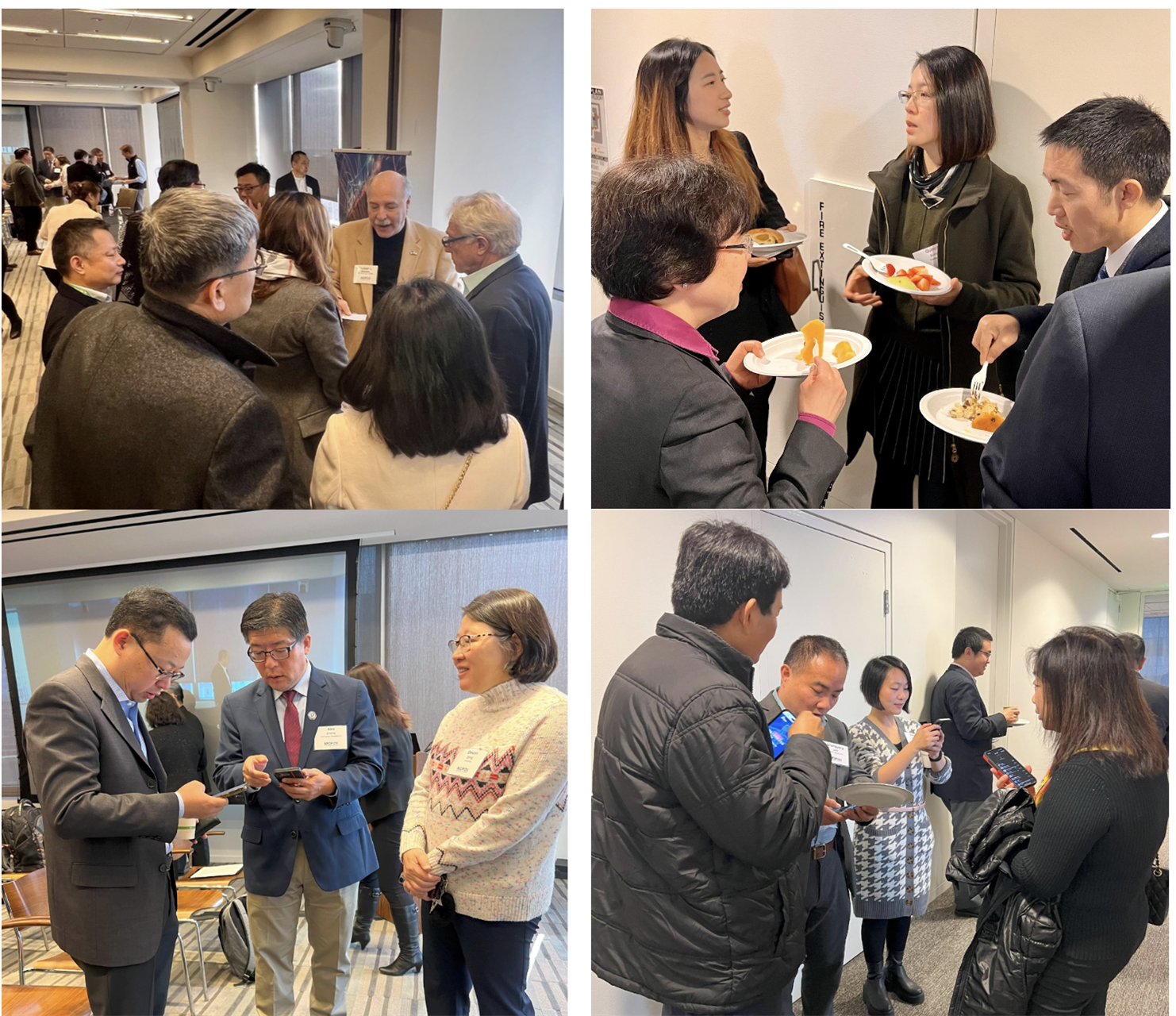
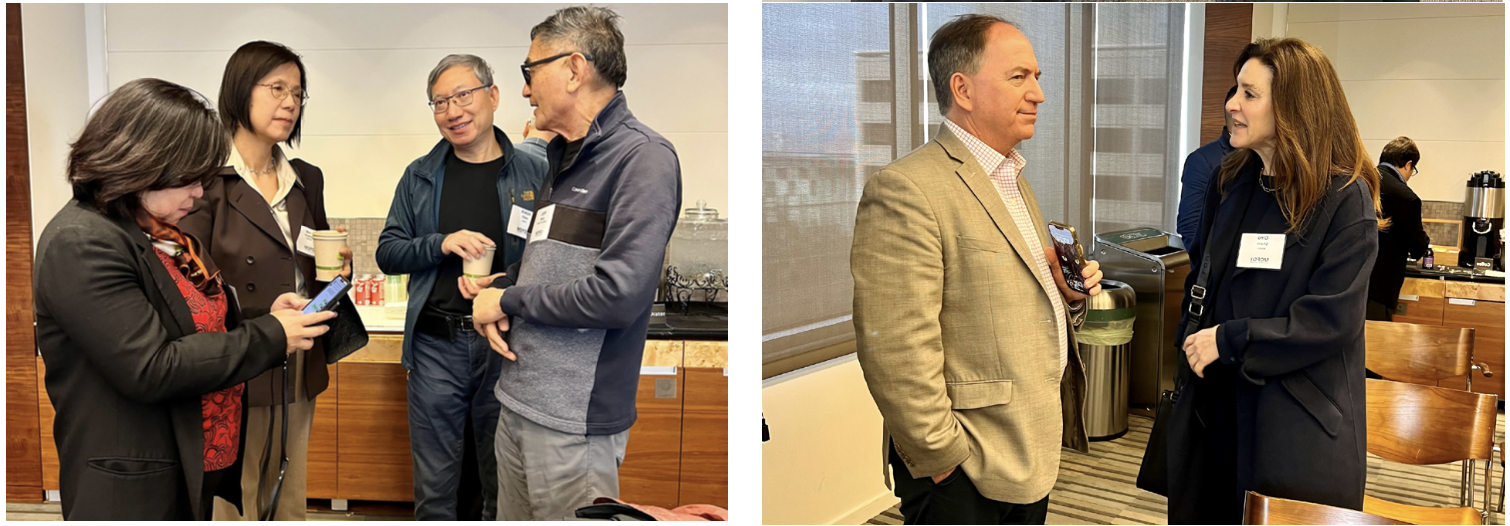 Special thanks to our CABS Volunteers as the event could not have been made possible without their help. CABS also acknowledge the successful promotion and attendance made possible for this event due to the dedication and commitment of our CABS PRC.
Special thanks to our CABS Volunteers as the event could not have been made possible without their help. CABS also acknowledge the successful promotion and attendance made possible for this event due to the dedication and commitment of our CABS PRC.
CABS Volunteers:
Jessica Sun, PhD,President 2024; Kay Tong, MA, President-Elect 2024; Yuying “Kate” You, PhD, JD, Past President 2023; Li Wang, MS, SLC Co-Chair; Liping Meng, PhD, BCD Co-Chair; Liang He, PhD, PRC Co-Chair; Lin Wang, PhD, Volunteer; Lu Lu, MS, AMC Co-Chair; Shicheng Guo, PhD, BCD EC; Shirley Dou, MS, Volunteer; Yan Wang, PhD, STC Co-Chair; Zhiqing Wang, PhD, Volunteer

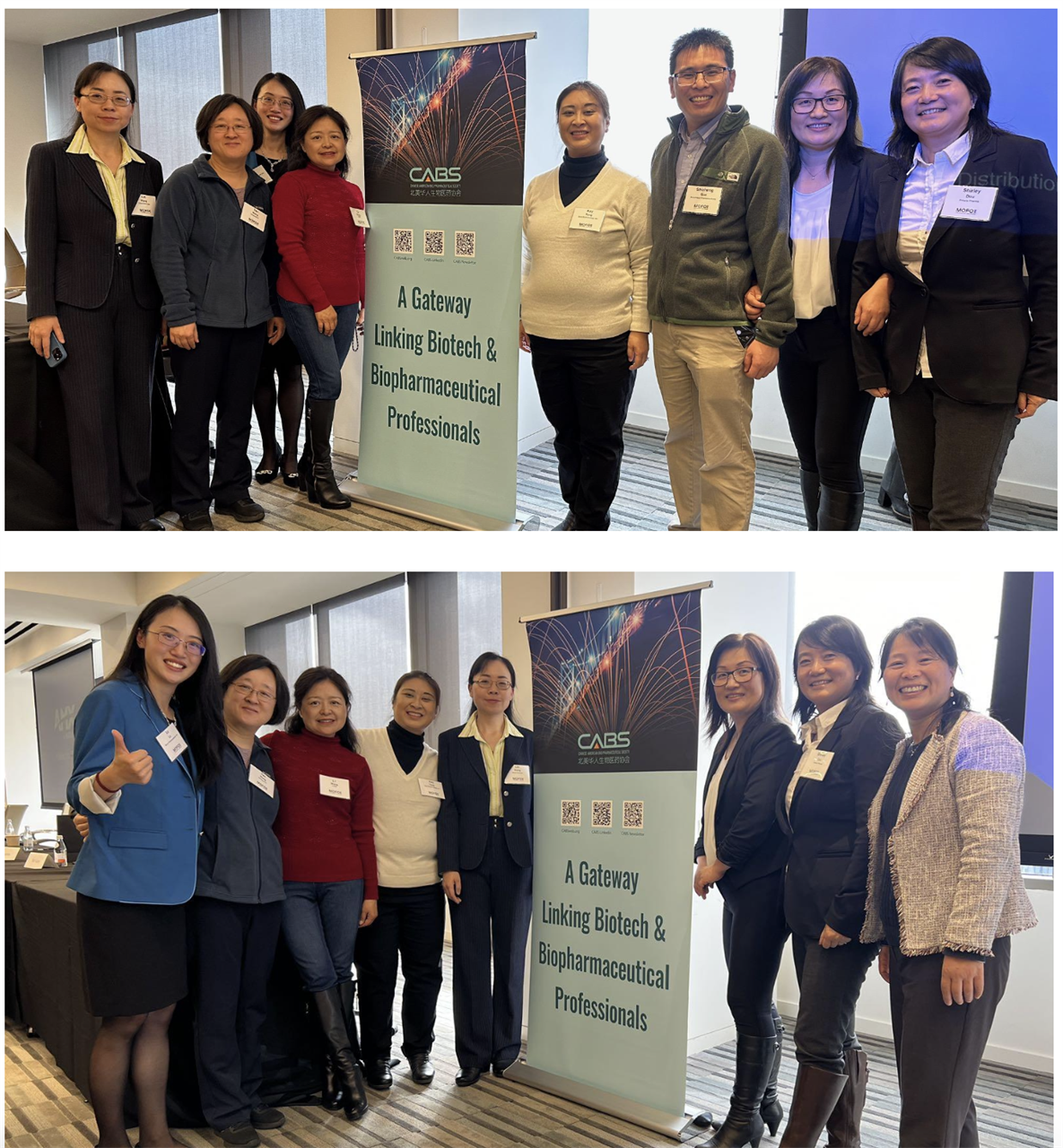
Acknowledgements:
Recap Author: Kay Tong, MA, CABS President-Elect 2024
Editors: Liping Meng, PhD, BCD Co-Chair; Jessica Sun, PhD,CABS President 2024
Photographers: Lu Lu, MS, AMC Co-Chair; Li Wang, PhD, SLC Co-Chair
Event Promotion: Liang He, PhD, PRC Co-Chair
.
